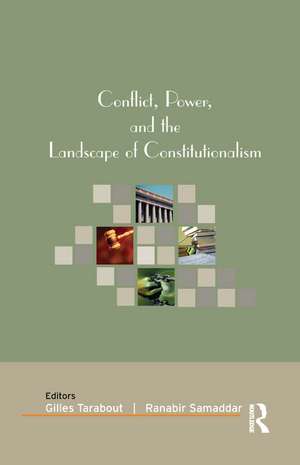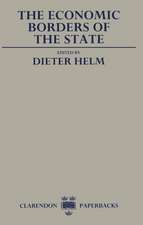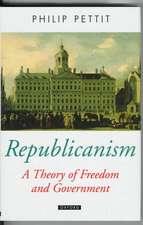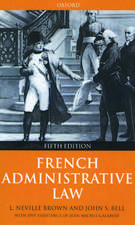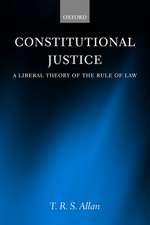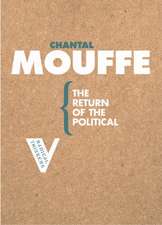Conflict, Power, and the Landscape of Constitutionalism
Editat de Gilles Tarabout, Ranabir Samaddaren Limba Engleză Paperback – 14 aug 2018
The book addresses both constitutions and the societies in which they emerge. Many of the essays in this collection show how institutional practices originating from a legal text create a matrix of power that owes its life, neither to a contract between men, nor between the state and men, nor even between the society and men, but rather to relations established, organized, and formalized by laws.
The collection is significant because it gives colonial and post-colonial experiences a justified place in studies of law and constitutionalism, for it shows that while Montesquieu, Kant, and Burke each in their own way were promoting the spirit of laws, a more significant history of law-making was being enacted in order to defend a particular rule, and a particular type of government on another side of the world.
Based on comparative studies in several countries across three continents, the book centrally deals with issues of constitutionalism, political representation and citizenship.
| Toate formatele și edițiile | Preț | Express |
|---|---|---|
| Paperback (1) | 90.69 lei 6-8 săpt. | |
| Taylor & Francis – 14 aug 2018 | 90.69 lei 6-8 săpt. | |
| Hardback (1) | 671.10 lei 6-8 săpt. | |
| Taylor & Francis – 28 mar 2008 | 671.10 lei 6-8 săpt. |
Preț: 90.69 lei
Nou
Puncte Express: 136
Preț estimativ în valută:
17.35€ • 18.16$ • 14.42£
17.35€ • 18.16$ • 14.42£
Carte tipărită la comandă
Livrare economică 02-16 aprilie
Preluare comenzi: 021 569.72.76
Specificații
ISBN-13: 9781138384170
ISBN-10: 1138384178
Pagini: 264
Dimensiuni: 129 x 198 x 15 mm
Greutate: 0.27 kg
Ediția:1
Editura: Taylor & Francis
Colecția Routledge India
Locul publicării:Oxford, United Kingdom
ISBN-10: 1138384178
Pagini: 264
Dimensiuni: 129 x 198 x 15 mm
Greutate: 0.27 kg
Ediția:1
Editura: Taylor & Francis
Colecția Routledge India
Locul publicării:Oxford, United Kingdom
Public țintă
PostgraduateCuprins
Introduction: Conflict, Power, and the Landscape of Constitutions Ranabir Samaddar 1. Constitution Making in the Process of Decolonisation Dietmar Rothermund 2. The Extra-ordinary State – French Rule in Algeria Olivier Le Cour Gransmaison 3. Law and Terror in the Age of Constitution Making Ranabir Samaddar 4. The Citizen and Subject: A Postcolonial Constitution for the European Union? Sandro Mezzadra 5. The Silent Erosion: Anti-Terror Laws and Shifting Contours of Jurisprudence in India Ujjwal Kumar Singh 6. The Post-communist Revolution in Russia and the Genesis of Representative Democracy Artemy Magun 7. The Acts and Facts of Women’s Autonomy in India Paula Banerjee 8. The Limits of Constitutional Law: Public Policies and the Constitution Afonso Da Silva 9. Regulation of the Particular and its Socio-Political Effects Rastko Moènik 10. Constitutionalism in Pakistan: The Lingering Crisis of Diarchy Mohammad Waseem
Descriere
This book critically examines the implication of a constitution of law for a political society. Based on comparative studies in several countries across three continents, the book centrally deals with issues of constitutionalism, political representation and citizenship.
